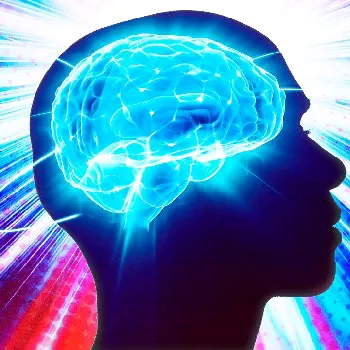The Science of Love
You’ve probably heard that love is the key to happiness, but it’s useful to know how happy chemicals create that feeling. Love is a huge surge of happy chemicals because it’s hugely relevant to the survival of your genes. You’re not thinking about your genes when you’re in love, but your genes are inherited from people who did what it took to reproduce successfully. Brains that motivate reproductive behavior end up making more copies of themselves. Sex is only a small part of the story. Everything from competing for healthy mates to nurturing healthy offspring is relevant to what biologists call “reproductive success.” Love motivates all of these behaviors.
You may find it hard to link your loving feelings to natural selection. But in the animal world, it’s easy to see how brain chemicals shape mating behavior. The mammal brain is very focused on reproductive success. Once a mammal’s immediate survival needs are met, its thoughts turn to the survival of its genes. Animals are surprisingly picky about their mates. For example, every species avoids in-breeding in one way or another. Without conscious concern for genes, neurochemicals motivate alternative choices. Brains that produced in-breeders died out, while brains that motivated alternative mating choices flourished.
Dopamine is stimulated by the “chase” aspect of love. It’s also triggered in a baby who hears his mother’s footsteps. Dopamine is the brain’s signal that a need is about to be met. Female chimpanzees are known to be partial to males who share their meat after a hunt. Protein is scarce in the rainforest and females need a lot of it for gestation and lactation, so meat is a great dopamine stimulator. For humans, finding “the One” makes you high on dopamine. However you define what you seek, dopamine excites...
You may find it hard to link your loving feelings to natural selection. But in the animal world, it’s easy to see how brain chemicals shape mating behavior. The mammal brain is very focused on reproductive success. Once a mammal’s immediate survival needs are met, its thoughts turn to the survival of its genes. Animals are surprisingly picky about their mates. For example, every species avoids in-breeding in one way or another. Without conscious concern for genes, neurochemicals motivate alternative choices. Brains that produced in-breeders died out, while brains that motivated alternative mating choices flourished.
Dopamine is stimulated by the “chase” aspect of love. It’s also triggered in a baby who hears his mother’s footsteps. Dopamine is the brain’s signal that a need is about to be met. Female chimpanzees are known to be partial to males who share their meat after a hunt. Protein is scarce in the rainforest and females need a lot of it for gestation and lactation, so meat is a great dopamine stimulator. For humans, finding “the One” makes you high on dopamine. However you define what you seek, dopamine excites...




